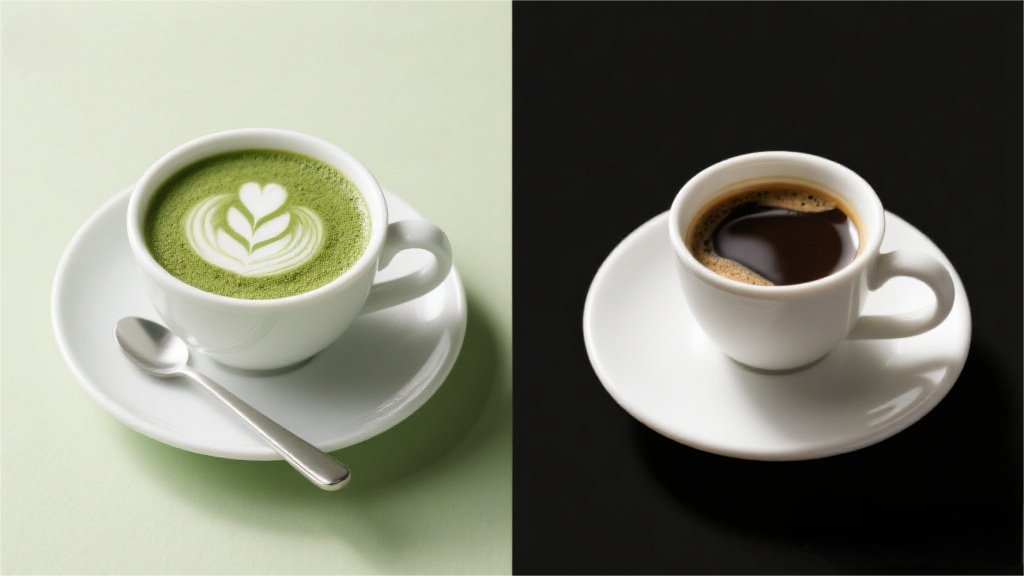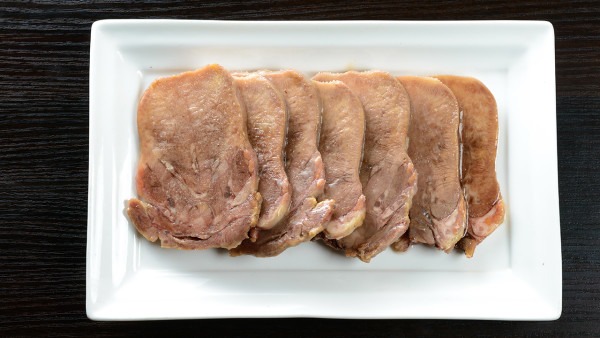Matcha isn’t your average green tea. Because you’re consuming the whole powdered leaf, it packs a stronger caffeine punch than regular steeped green tea.

Matcha’s Caffeine Content
A typical serving (1 tsp or about 2 grams of matcha powder) contains roughly 30–70 mg of caffeine. For comparison:
Brewed green tea: 20–45 mg per cup
Coffee: 95 mg per cup (but can vary widely)
Espresso: ~63 mg per shot
Why the Range?
Factors like matcha grade (ceremonial vs. culinary), brewing time, and water temperature affect caffeine levels. Higher-quality ceremonial matcha tends to have more caffeine because it’s made from younger, nutrient-rich leaves.
Matcha vs. Coffee: The Slow Burn
Unlike coffee’s jittery spike, matcha’s caffeine pairs with L-theanine, an amino acid that promotes calm focus. No crash, just smooth energy—perfect for productivity without the shakes.
Can You Overdo It?
The FDA suggests capping caffeine at 400 mg/day for most adults. With matcha, that’s about 5–6 servings max, but listen to your body—some folks are more sensitive.
The Hidden Downsides of Coffee
coffee is a daily ritual—rich, bold, and energizing. But beneath its beloved flavor and caffeine kick, coffee can cause bloating, stubborn belly fat, anxiety, and insomnia. Despite these issues, finding a satisfying alternative has been a struggle. Tea often falls short, lacking coffee’s depth and intensity. And let’s be honest—nothing compares to the creamy indulgence of a latte or the sensory pleasure of grinding fresh beans. Yet, after years of cycling back to coffee despite its drawbacks, I finally discovered a worthy replacement: matcha green tea lattes.
Health Concerns: Why Some Should Consider Ditching Coffee
While coffee has antioxidants and cognitive benefits, it’s not for everyone. The high acidity can irritate the gut, leading to bloating and digestive discomfort. Caffeine sensitivity varies, and for some, even one cup triggers jitters, sleep disturbances, or adrenal fatigue. Over time, reliance on coffee can disrupt natural energy cycles, leaving people dependent on caffeine just to feel "normal."
The Matcha Breakthrough: A Coffee Alternative That Works
Matcha green tea offers a solution—smooth, earthy, and packed with sustained energy. Unlike coffee’s sharp crash, matcha provides a calm alertness thanks to L-theanine, an amino acid that balances caffeine’s effects. When prepared as a latte, it delivers a creamy, satisfying experience without the digestive downsides. Plus, its vibrant green hue and ceremonial preparation add a new ritual to replace coffee’s comforting routine.
Why Some People Struggle with Caffeine—And When to Cut Back
Not everyone reacts to caffeine the same way. While some can drink a cup of coffee right before bed and sleep soundly, others experience jitters, insomnia, or even panic attacks after just one sip. The difference often comes down to genetics. Researchers at Harvard’s School of Public Health have identified specific genes that influence how quickly—or slowly—our bodies break down caffeine. For some, this process takes much longer than average, leading to heightened sensitivity and prolonged effects.
Genetics Play a Major Role in Caffeine Metabolism
The speed at which your body processes caffeine depends largely on your DNA. The average half-life of caffeine—the time it takes for your system to eliminate half of it—is about five to six hours. However, this window varies dramatically from person to person. Some metabolize it in as little as two hours, while others may take up to 10. If you’re among those with slower metabolism, even small amounts of caffeine can linger in your system, amplifying its effects.
The Anxiety Connection
For caffeine-sensitive individuals, the stimulant can trigger or worsen anxiety-related symptoms. These may include restlessness, irritability, rapid heartbeat, and difficulty sleeping. In extreme cases, excessive caffeine intake has been linked to full-blown panic attacks. If you’ve ever felt unusually tense or wired after a latte, your genes—not just the coffee—might be to blame.
Signs You Should Cut Back
If caffeine leaves you feeling on edge, it may be time to reassess your intake. Common red flags include trouble falling asleep, increased nervousness, or a racing heart after consuming coffee, tea, or energy drinks. Reducing or eliminating caffeine can lead to better sleep, more stable moods, and fewer anxiety flare-ups.
Coffee’s Hidden Side Effects: From Belly Fat to Anxiety and Nutrient Depletion
The Cortisol Connection and Belly Fat
Coffee stimulates cortisol release, mimicking the body’s stress response. Elevated cortisol not only raises blood sugar but also promotes fat storage, particularly around the midsection. Over time, this hormonal shift can lead to stubborn abdominal weight gain, even for regular exercisers.
Bloating and Digestive Discomfort
The acidity in coffee can irritate the stomach lining, triggering bloating—especially in those with sensitivities. While dairy additions often take the blame, black coffee alone can disrupt digestion, leaving you uncomfortably puffed up.
Anxiety and Neurochemical Chaos
Caffeine blocks adenosine, the neurotransmitter responsible for relaxation, while boosting dopamine and acetylcholine for temporary alertness. However, it also suppresses GABA, the brain’s natural calming agent, which can heighten anxiety. Long-term caffeine use may even lower serotonin levels, further impacting mood stability.
Sleep Sabotage
Caffeine’s half-life means it lingers in your system for hours, disrupting deep, restorative sleep stages—even if consumed six hours before bedtime. As caffeine sensitivity increases with age, that afternoon pick-me-up could morph into chronic insomnia.
Reactive Hypoglycemia: The Caffeine Crash
Some coffee drinkers experience jitters, sweating, and rapid heartbeat—symptoms mirroring low blood sugar. This "reactive hypoglycemia" occurs when caffeine tricks the body into feeling starved of glucose, despite normal levels. Skipping caffeine often resolves these false alarms.
Nutrient Drain: Magnesium and B Vitamins
Caffeine flushes out critical nutrients, including magnesium, a mineral vital for mental health and linked to anxiety and depression relief. B vitamins, essential for stress management, also take a hit. Supplementing with magnesium and B complexes may help counteract caffeine’s depleting effects.
Matcha Green Tea: A Calmer, Healthier Alternative to Coffee
Matcha green tea stands out from other beverages due to its unique preparation, health benefits, and the way its caffeine interacts with the body. Unlike coffee, which can cause jitters and energy crashes, matcha provides a smoother, more sustained boost thanks to L-theanine, an amino acid that promotes relaxation without drowsiness. This combination of caffeine and L-theanine creates a state of "calm alertness," making matcha an ideal choice for those seeking focus without anxiety. Additionally, matcha is packed with antioxidants—far more than regular green tea—offering benefits like improved metabolism, fat burning, and even potential cancer-fighting properties.
The Science Behind Matcha’s Calming Caffeine
While matcha contains about half the caffeine of coffee, its effects are markedly different due to the presence of L-theanine. This natural compound enhances mood, sharpens concentration, and counteracts caffeine’s harsher side effects. Unlike coffee, which can lead to energy spikes and crashes, matcha delivers a steady, jitter-free alertness. However, those sensitive to caffeine should still approach matcha with caution, as it does contain stimulants—just in a more balanced form.
Matcha’s Exceptional Antioxidant Power
Because matcha is made from finely ground whole tea leaves, it retains far more nutrients than steeped green tea. Studies show it contains up to 10 times the antioxidants of regular green tea, including high levels of catechins—compounds linked to anti-aging, cholesterol reduction, and cancer prevention. A single cup of matcha delivers the antioxidant equivalent of 10 cups of brewed green tea, making it one of the most potent health-boosting beverages available.
Metabolism Boost and Fat-Burning Benefits
Research published in the American Journal of Clinical Nutrition found that matcha can increase the body’s calorie-burning rate from 8-10% to 35-43%. Another study revealed that drinking matcha before exercise enhances fat oxidation by 25%. These findings suggest that matcha may be a valuable tool for weight management and metabolic health.
The Mindful Ritual of Matcha Preparation
Beyond its health benefits, matcha offers a meditative ritual that enhances mindfulness. Unlike instant coffee, preparing matcha involves whisking the powder into hot water until frothy—a process that encourages presence and intentionality. Many enthusiasts use a traditional bamboo whisk or a small electric frother to achieve the perfect consistency. For a creamier option, matcha can be turned into a latte with frothed nut or dairy milk. This deliberate, calming practice makes matcha more than just a drink—it’s a mindful way to start the day.
Matcha’s Deep Roots in Zen Buddhism
Matcha’s connection to mindfulness extends back centuries. When Zen Buddhist monk Eisai introduced matcha to Japan in the medieval period, he recognized its ability to enhance mental clarity and meditation. Drawing from the ancient Chinese tea ceremony cha dao ("The Way of Tea"), Eisai adapted matcha rituals to emphasize spiritual awareness. Today, this tradition lives on, making matcha not just a beverage but a tool for cultivating focus and tranquility.
Final Thoughts: Is Matcha Right for You?
For those seeking a gentler caffeine source with added health perks, matcha is an excellent choice. Its combination of L-theanine, antioxidants, and metabolism-boosting properties sets it apart from coffee and regular green tea. Plus, the mindful preparation process offers a moment of calm in a hectic world. If you enjoy caffeine but dislike its side effects, matcha might be the perfect alternative—just remember to savor it slowly, appreciating both its flavor and its rich cultural heritage.
























